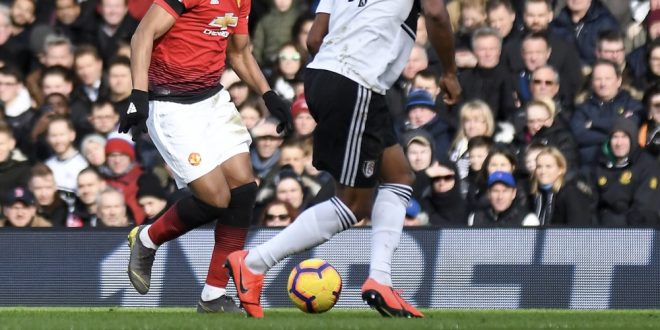MPs have urged that the Premier League and other sports governing bodies should commit to cutting the volume of gambling adverts in stadiums.
The Culture, Media and Sport (CMS) Committee has published its report on the Gambling Act review White Paper, particularly urging the government to do more to minimise children’s exposure to gambling advertising.
MPs have called for the Department of Culture, Media and Sport (DCMS) – the government Department with oversight of the industry and which published the Gambling Act review – to adopt a more precautionary approach than that proposed in the gambling White Paper.
The MPs’ report underlines that withdrawal of gambling sponsorship from the front of Premier League players’ kit is welcome, but suggests that this will not significantly reduce the volume of gambling adverts visible during top-flight matches.
“The Government must work with the Premier League and the governing bodies of other sports to ensure that the gambling sponsorship code of conduct contains provisions reducing the volume of gambling adverts in stadia,” CMS emphasised.
The committee also agreed that the code should also require a higher proportion of gambling advertising in stadiums dedicated to independently-developed safer gambling messaging.
CMS Chair, Dame Caroline Dinenage MP, stated: “While gambling regulation should not overly impinge on the freedom to enjoy what is a problem-free pastime for the majority, more should be done to shield both children and people who have experienced problem gambling from what often seems like a bombardment of advertising branding at football and other sporting events.”
Other key suggestions include a detailed timetable for the delivery of the White Paper’s proposals, with the Committee concerned that there was no mention of gambling legislation in the King’s Speech.
Furthermore, CMS stated that the Government and UK Gambling Commission (UKGC) should set out how to address the growing trend of unlicensed gambling sites targeting the self-excluded.
The Committee emphasised that the UKGC must also continue to work to improve its knowledge of the black market and its ability to monitor the number of British consumers gambling with illegal operators.
Meanwhile, the report highlighted the ‘urgent need’ to better understand the effects of gambling advertising on the risk of harm.
MPs cited that evidence for a link between advertising and gambling harm, which currently appears much stronger than evidence indicating there is a risk gambling advertising restrictions pushing customers to the black market.
The advice given to the government is that it must commission research on the link between gambling advertising and the risk of gambling harm, including a specific examination of the impact for women and children.
On this topic, CMS added that the government should review the case for banning children’s access to social casino games – often playable on smartphones and simulate gambling activities and products.
On financial risks checks, the Committee showed its support for this principle – one of the headline measures of the review – but stated they must be minimally intrusive with customers’ financial data properly protected.
“There should be a pilot of the new system before the checks are fully implemented,” the report laid out.
More on this sector, the committee demonstrated its support for the proposed enhanced online gambling protections for young adults aged 18-24, namely triggering a financial risk check at a lower monetary loss threshold and limiting the stake for online slots to £2.
The report also touches upon land-based gambling, gambling research, prevention and treatment as well as the establishment of a gambling Ombudsman.
Dinenage concluded: “The Government needs to go further than the proposals in the White Paper and work with sports governing bodies on cutting the sheer volume of betting adverts people are being exposed to.”
The full report is available on the UK Parliament website.









